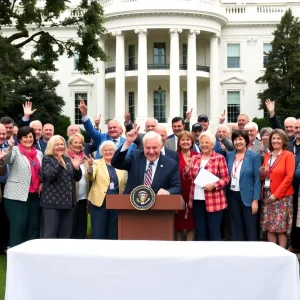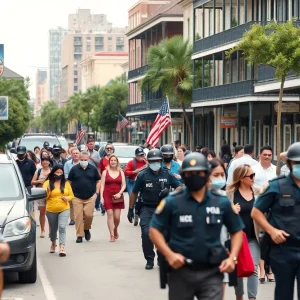Kansas City, Missouri, Gears Up for Community Survey to Tackle Crime
In an exciting step towards making neighborhoods safer, Kansas City, Missouri, is set to launch a community survey that will invite input from residents across 40 neighborhoods. This survey is part of KCMO’s extensive $30 million plan known as the Violence Prevention Fund, which aims to actively engage citizens in the conversation around crime and safety in their communities. The survey will start to circulate in just two weeks, and it promises to be a game-changer for those who want to see real change in their neighborhoods.
A Unique Initiative
Dr. Maja Kotlaja, the principal investigator for this innovative program and assistant professor in the Department of Criminology and Criminal Justice at the University of Missouri – Kansas City, is leading the charge. She emphasizes that “this has never been done in KC” and is inspired by successful initiatives in cities like Chicago. The survey will help to gauge residents’ perceptions of crime and disorder, aiming to establish a baseline for understanding the community’s health, happiness, and overall growth.
“Essentially, this survey will gather insights into how neighborhood conditions, including crime and safety, impact our community’s health, happiness, and growth,” Kotlaja explains. Those who participate in the survey will also receive a $50 gift card as a token of appreciation for sharing their experiences.
Community Voices Matter
The survey aims to empower Kansas City citizens by allowing them to voice what they think drives crime and disorder in their neighborhoods. Kotlaja has carefully selected 30 neighborhoods at random and an additional 10 neighborhoods based on higher violent crime rates. “At the end of the day, the community is going to be the one who solves crime in our city,” she states confidently.
One local resident involved in this initiative is Janese Williams, who is part of the UMKC data collection team as an expert interviewer. Williams passionately believes in the power of community voices. “I want to empower our communities to solve the issues at hand,” she says. “We have a lot of violence and criminality plaguing our city that doesn’t seem to get any better.”
Creating a Dialogue
Williams and her team will be gathering feedback directly from residents, which they believe is a crucial step toward creating effective strategies for combating crime. They are actively seeking 20 more surveyors to assist in this important process. Williams adds, “We know what’s affecting our communities, but there’s no voice for those issues when they only stay at the kitchen table.”
This new survey approach strives to transform conversations about crime into actionable data. “We’re just having a conversation,” Williams explains. “We are really having a conversation with your niece, your grandma, and your neighbors—let’s talk to understand what the issues are.”
The Bigger Picture
The aims of this survey extend beyond data collection. The insights gathered will be shared with the KCMO City Council and the city’s health department, paving the way for informed public policy and allocation of resources. “We need national support to be able to pour resources into our community to combat the problem; this is bigger,” Williams asserts. “What KC can fix by ourselves is vital, but we also need the funding to implement those solutions.”
Future Expectations
Looking ahead, Kotlaja anticipates the survey will reach around 800 households, with results expected to be published in January 2025. The implementation will take place from October 5th to 13th, and there’s still an opportunity for community members to get involved as interviewers, earning $20 per hour. If you want to make your voice heard and be part of this important work, now’s your chance!
In conclusion, Kansas City is taking a significant step toward empowering its residents to discuss and tackle crime directly through this community survey. With community members leading the charge, there’s a renewed sense of optimism that collectively, the city can turn the tide on crime and make neighborhoods a safer, happier place to live.







